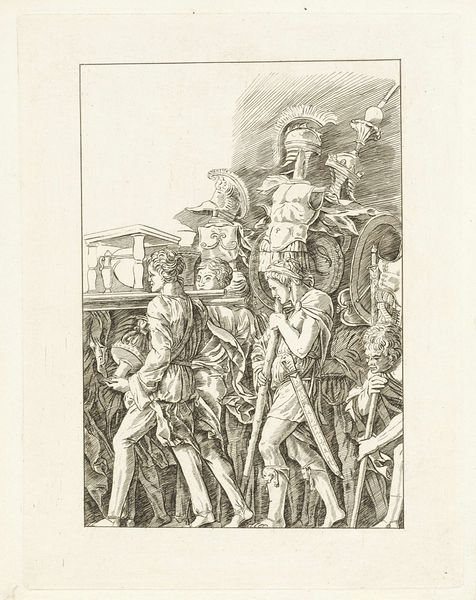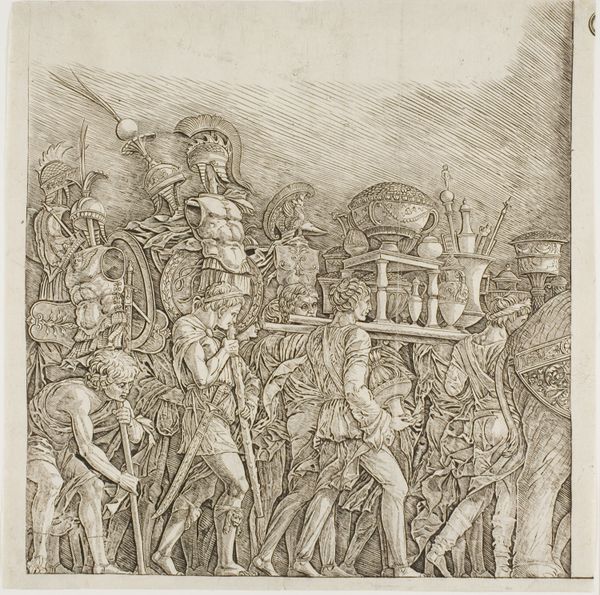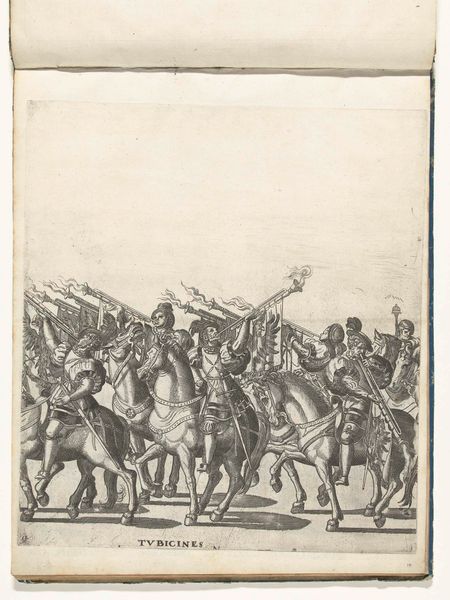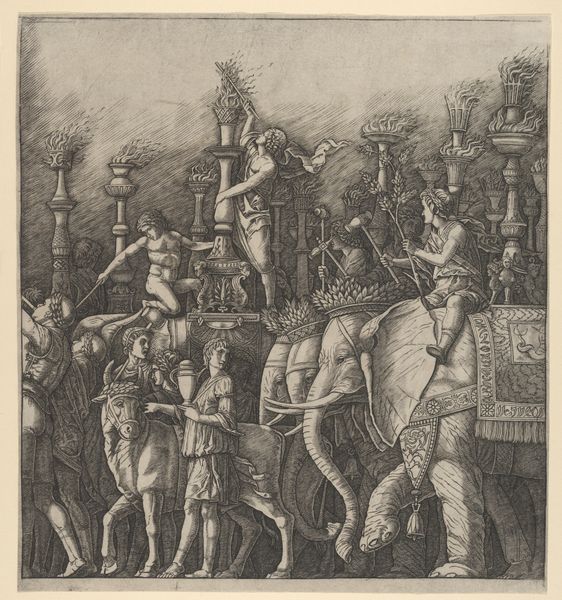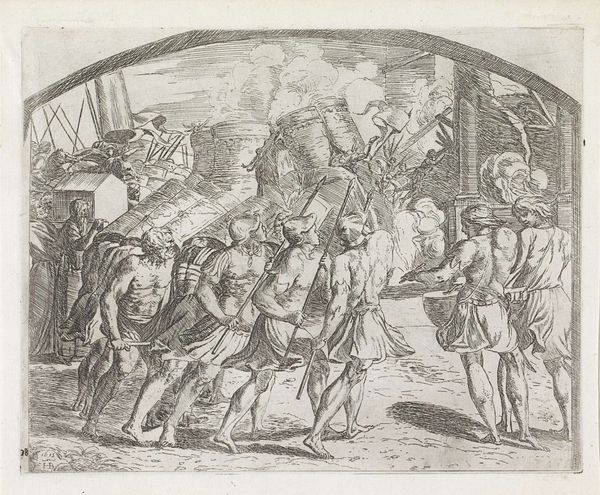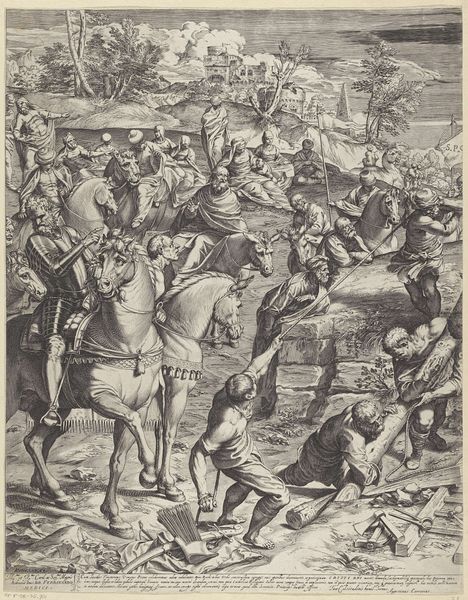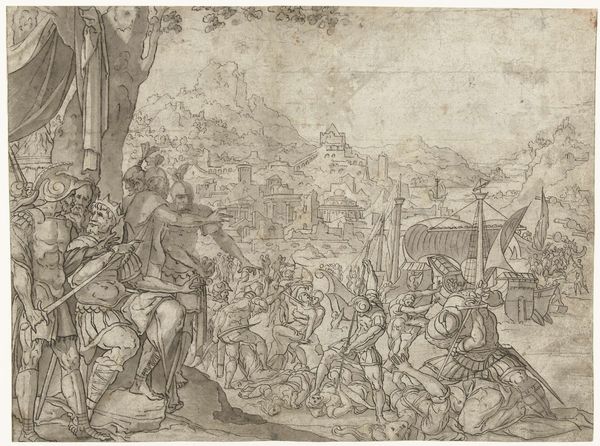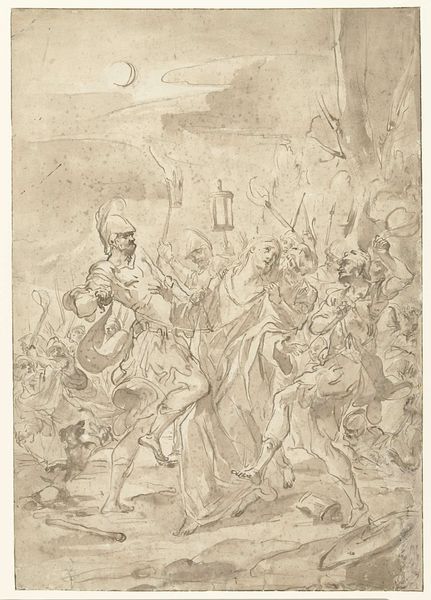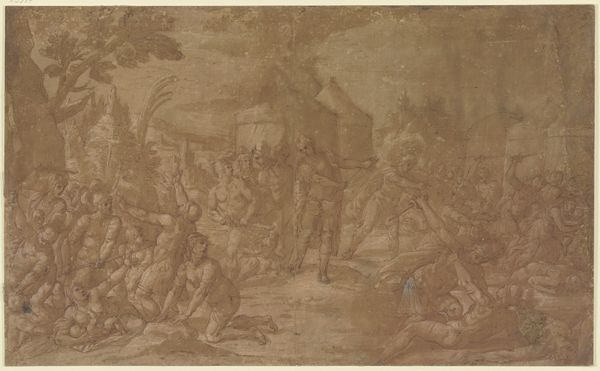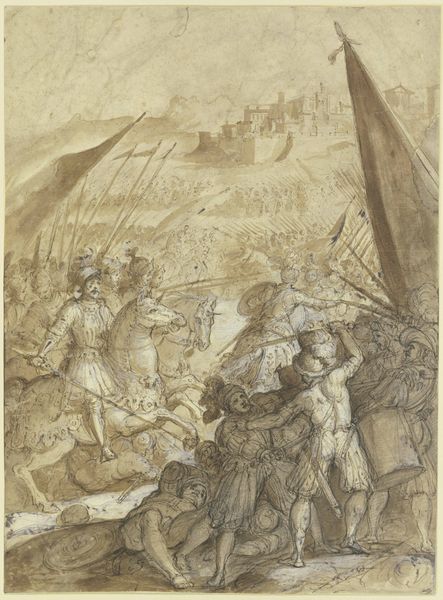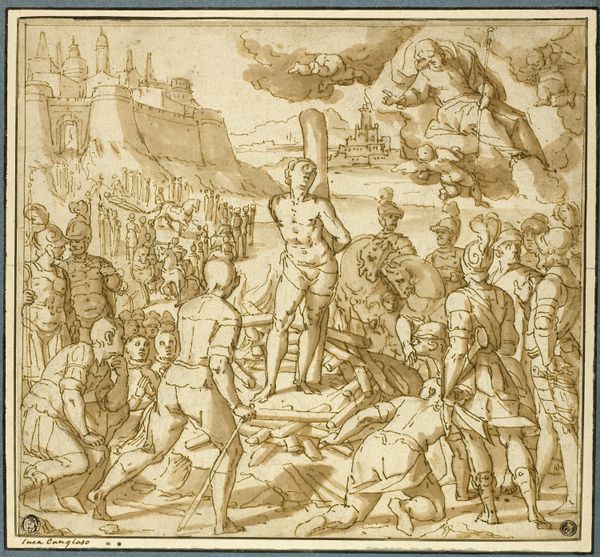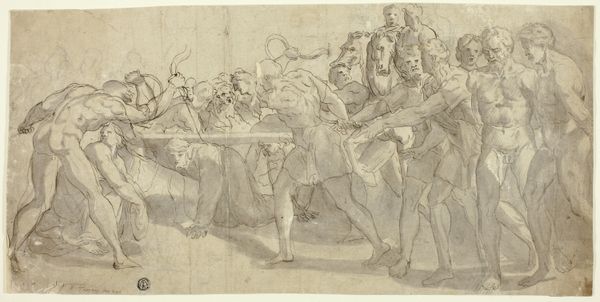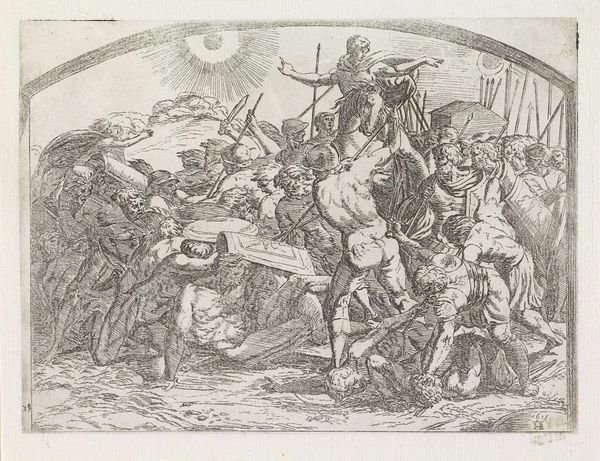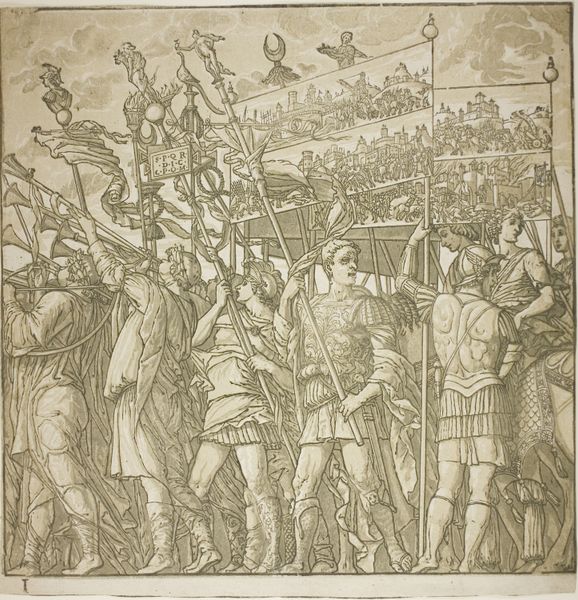
drawing, ink
#
drawing
#
war
#
landscape
#
figuration
#
11_renaissance
#
ink
#
line
#
history-painting
#
academic-art
#
italian-renaissance
Dimensions: height 292 mm, width 259 mm
Copyright: Rijks Museum: Open Domain
Editor: So this drawing, “Soldiers with War Trophies in Caesar’s Triumphal Procession,” by Andrea Mantegna, from around 1486-1492. It’s ink on paper and depicts, well, exactly what the title says. There's such a sense of controlled power and stoicism. How would you interpret the symbolism at play here? Curator: Mantegna’s work echoes ancient Roman triumphal arches, doesn't it? Notice how he’s arranged these figures in a frieze-like manner. It isn't simply the story of Caesar's victory, it also invokes cultural memory. What emotions do the spoils evoke? Editor: Thinking about the spoils, they certainly represent conquest and power, but there’s also a somber undertone – a sense of loss. Are you suggesting the image intends to deliver mixed emotions? Curator: Precisely. Mantegna is delving into the psychology of power itself, I think. Each carefully rendered object contributes to a complex symbolic landscape. Do you notice how some figures carry objects, while others appear burdened or contemplative? Editor: Yes, some almost seem resigned or exhausted. Almost like they're burdened. It challenges this singular triumphant narrative. So the image contains both pride and regret? Curator: Indeed. And that ambiguity is precisely what makes it so compelling. Mantegna acknowledges both the spectacle of victory and the underlying human cost of it, I suggest. A lot to consider within a single sheet of ink, isn't it? Editor: It really is! Looking at it this way makes me see past the immediate victory narrative. Curator: I find that exploring what the artist might want us to *remember*, as opposed to only what we see on the surface, unlocks layers of meaning in the artwork.
Comments
No comments
Be the first to comment and join the conversation on the ultimate creative platform.
